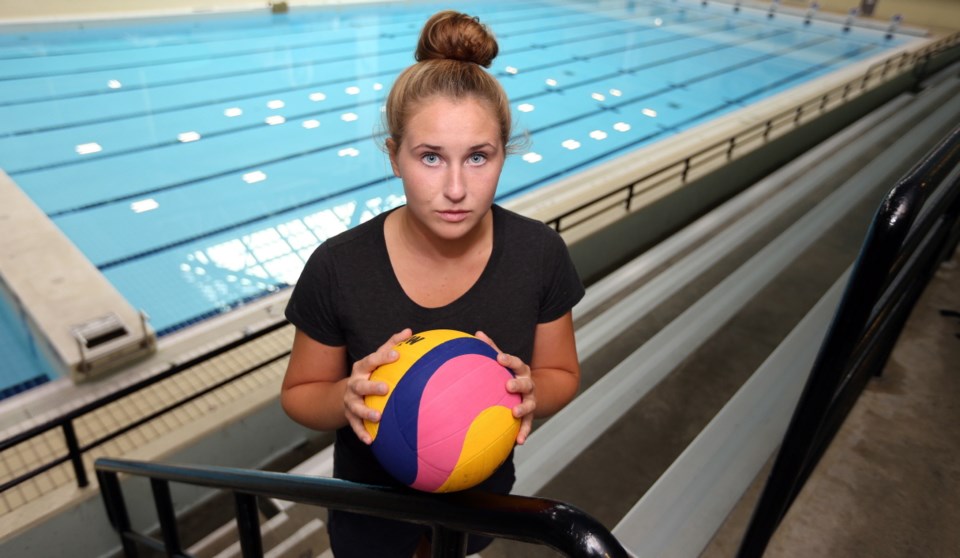Abby Irving has put herself in the driver’s seat. Too bad that with the finish line in sight, the car just stalled.
A kid who struggled when she was glued to a desk, the Central Saanich student has thrived since enrolling in sports school two years ago, splitting her week between mornings at Stelly’s Secondary and afternoons at the Pacific Institute for Sports Excellence.
The 17-year-old has worked her tail off both in the weight room and the classroom, her academic grades climbing impressively. She has aced her courses since joining the program, even earning 91 per cent in honours English last year — which must amaze those who used to shove Irving and her dyslexia into a corner, dismissing her as a lost cause.
And now the payoff: The water-polo player is looking good for a scholarship to a U.S. university. “There are huge opportunities for women down there,” she says.
Alas, with the brass ring within reach, she worries it could get snatched away. The strike is disrupting the lives of all B.C. public- school students, but the timing is particularly critical for those in Grade 12. That includes 3,000 who are supposed to graduate from the Greater Victoria, Saanich and Sooke school districts next spring.
We should assume the dispute will somehow end in time to salvage the school year, but the question is what kind of year will be left. Grade 12s fret that they won’t have had enough teacher time when exams roll around, and that their marks will suffer in consequence. That would put them at a disadvantage when competing with students from other provinces for scholarships and post-secondary spaces.
“The families I’m hearing the most from are the families with Grade 12 students,” says Sherri Bell, superintendent of the Greater Victoria School District.
“It’s a very stressful time for them.”
Lauryn Lewis can attest to that. The Belmont Secondary student even considered an offer to move in with family in Alberta and continue her education there.
Not knowing when the strike will end, or what will be done to compensate for lost time, is hard, the 17-year-old says. Like many schools, Belmont is on a semester system, meaning there will be a real crunch if the strike lasts until, say, Thanksgiving, and the instructional calendar isn’t altered. “I don’t know if they’re going to rush through things.”
Speculation is that districts might be told to scale back spring break, which would tick off those families who have already made holiday plans, but that’s not Lewis’s real concern. Her focus is her grades and what they mean to her future.
She is echoed by Stelly’s student Sarah Grunert. Entering her final year, the 16-year-old has already missed one scholarship application deadline because she couldn’t get the required Grade 11 transcripts and letters of recommendation from teachers. Other scholarship application deadlines are rushing up, as is early admission to post-secondary schools, and they all require the same info.
On top of that, Grunert is on the grad executive, trying to plan the year’s events off-site, without the help of staff. “It’s really complicated to do on our own.”
As for Abby Irving, she worries how those U.S. universities will react if her marks slip. “I don’t know how understanding they’re going to be about the strike.”
She wants to be clear, though: “I believe in what the teachers are doing 100 per cent.”
Her mother is a teacher, and Irving herself began her school days around the same time the Liberals turfed class size and composition limits a dozen years ago, resulting in a lack of support for kids with learning disabilities, something that made Irving’s educational experience pretty grim for a long time.
She says she doesn’t want anyone else to have to struggle the way she did until the sports school offered an escape. “Most kids who need the support aren’t going to make it out.”
“I’d love for the strike to have a positive resolution for them,” she says.
Hope it ends well for those in their grad year, too.



